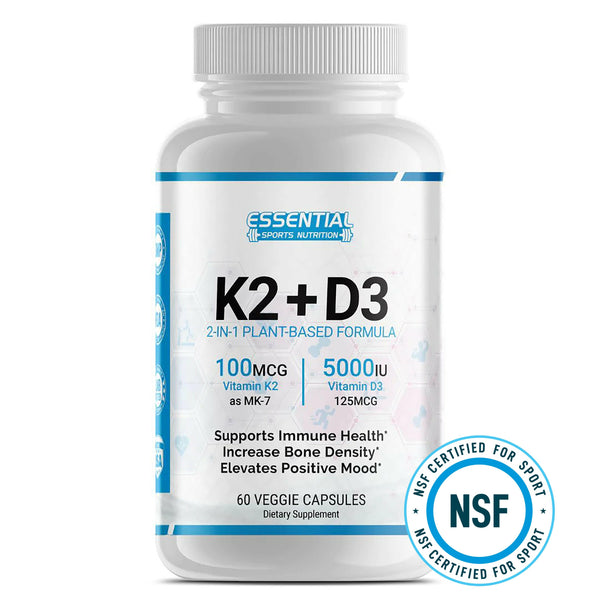Many people worry about keeping their hearts healthy. The American Heart Association recommends the Mediterranean diet for this purpose. It's based on what people in Mediterranean countries eat and includes lots of heart-healthy foods like fruits, veggies, whole grains, nuts, and olive oil.
Studies show that following this diet can lower your chances of having heart problems like heart attacks and high blood pressure. Plus, the omega-3 fatty acids in fish and the good fats in olive oil can help lower bad cholesterol and triglycerides, which are important for a healthy heart. Overall, the Mediterranean diet is a great choice for keeping your heart in tip-top shape and reducing the risk of heart-related issues.

Key Takeaways
- The Mediterranean diet lowers the risk of heart disease by focusing on plant-based foods and healthy fats like olive oil.
- Eating this way reduces bad cholesterol, blood pressure, and supports weight management.
Understanding the Mediterranean Diet
The Mediterranean diet focuses on eating more plants and less meat. It highlights the importance of choosing healthy fats for your meals.
Plant-based, not meat-based
Meals in the Mediterranean diet focus on plant foods. This includes lots of vegetables, fruits, whole grains, and olive oil. People also enjoy legumes and nuts instead of red meat.
This shift towards plants helps keep your heart healthy.
Eating more plants leads to lower cholesterol levels. Research shows vegetarians often have better heart health than people who eat meat. By choosing beans, whole grains, and olive oil over animal products, you take a big step towards improved well-being.
Emphasizes healthy fats
The Mediterranean diet focuses on healthy fats. It uses olive oil as the main fat, making dishes rich in monounsaturated fats. These good fats help lower bad cholesterol and improve heart health.
Nuts are also a key part of this diet. They provide omega-3 fatty acids which protect against heart disease.
Butter and margarine get replaced by healthier options like olive oil in this eating plan. This shift helps cut down on saturated and trans fats, linked to heart problems. By choosing these better fats, you support your cardiovascular system while enjoying delicious meals.
Key Components of the Mediterranean Diet
The Mediterranean Diet fills your plate with colorful plant foods and healthy fats. It makes olive oil the star of every meal for a heart-happy diet.
Fruits, vegetables, whole grains
Eating lots of fruits, vegetables, and whole grains is a big part of the Mediterranean diet. These foods fill your plate with vitamins, minerals, and fiber that keep your heart healthy.
They also help you feel full without adding too many calories. Fruits and veggies come in all colors, offering a variety of nutrients. Whole grains like oatmeal, barley, whole wheat bread, and brown rice provide long-lasting energy.
Beans and nuts are other key foods in this eating plan. They offer protein but don’t have the saturated fats found in some meats which can clog arteries. Olive oil replaces butter and other oils high in unhealthy fats.
This switch helps lower bad cholesterol levels while keeping good cholesterol stable. Together, these food choices ward off obesity and reduce the risk for heart disease.
Beans, nuts, and seeds
Beans, nuts, and seeds are vital to the Mediterranean diet. They provide healthy fats like omega-6 and omega-3 fatty acids. These foods also give you plant sterols that help your heart stay strong.
Almonds, walnuts, hazelnuts, and pine nuts are great choices for snacking or adding to meals.
Including legumes in your diet boosts fiber intake and helps with weight management. Seeds such as sunflower and pumpkin seeds add crunch and nutrients to salads or as a topping on whole-grain bread.
They make eating healthy tasty and interesting, supporting a heart-healthy lifestyle without refined carbohydrates or added sugars.
Olive oil as a primary fat source
Olive oil stands out as the main fat source in the Mediterranean Diet. It's packed with monounsaturated fats that are good for your heart. These fats help lower bad cholesterol levels and improve overall heart health.
Eating foods rich in these healthy fats can also reduce inflammation in your body.
People use olive oil in various ways, from cooking vegetables to dressing salads. This versatile oil not only enhances flavor but also brings many health benefits. Its fatty acids play a crucial role in preventing diseases by increasing cell death of unhealthy cells and reducing inflammation risk.
Alongside nuts and seeds, which share similar nutritious profiles, olive oil supports a diet that guards against cardiovascular problems while promoting wellness.
The Impact of the Mediterranean Diet on Heart Health
The Mediterranean Diet lowers the chances of getting heart problems, making your heart healthier.
Reduces risk factors for cardiovascular disease
Eating the Mediterranean way helps lower high cholesterol and high blood pressure. These are big risks for heart disease. People who follow this diet cut their chances of having more heart problems.
Studies show a 21% drop in these dangers.
This diet also fights against stroke, obesity, diabetes, and too much cholesterol. Using olive oil instead of butter makes blood vessels healthier. Eating lots of fruits, vegetables, and fish fills you up with good nutrients without the bad fats found in processed foods.
Promotes weight management
The Mediterranean diet helps control weight. It focuses on plant-based foods, healthy fats, and lean proteins like poultry, eggs, and seafood. These choices fill you up without adding too many calories.
Regular meals include fruits, vegetables, and whole grains which keep hunger at bay.
Following this diet means less room for unhealthy snacks and sweets that lead to weight gain. Olive oil replaces butter, making dishes healthier and lower in bad fats. Seafood options such as salmon, tuna, and sardines offer omega-3s that are good for the heart but also help in managing body weight by improving metabolism.
This way of eating combined with exercise supports a healthy lifestyle that naturally leads to weight management.
The Benefits of the Mediterranean Diet Beyond Heart Health
Eating the Mediterranean way also helps keep your blood sugar steady and protects your brain.

Supports healthy blood sugar levels
A Mediterranean diet keeps blood sugar levels in check. This eating plan is full of minimally processed plant foods that research has linked to a lower risk of health issues tied to blood sugar.
By focusing on these nutrient-rich foods, people can maintain steadier blood sugar levels, reducing the risk of type 2 diabetes.
Including whole grains, fruits, vegetables, and healthy fats from olive oil and nuts supports stable blood sugar. These components are essential parts of the Mediterranean diet and help prevent sudden spikes or drops in blood sugar.
This stability is crucial for managing and preventing diabetes-related conditions.
Protects brain function
Eating the Mediterranean way is not just good for your heart; it also keeps your brain sharp. Foods rich in fiber, monounsaturated fats, magnesium, and B vitamins fuel your brain health.
These nutrients are plentiful in the diet's fruits, vegetables, nuts, and olive oil. Research shows these healthy fats play a big role in protecting the brain.
A study involving 509 twins revealed that those who followed a Mediterranean or MIND diet had better cognitive health during midlife. This suggests that this eating style has a positive impact on maintaining brain function as we age.
So, adding more tomatoes, whole grains like bulgur, and using oils like olive or canola could help keep your memory sharp and thoughts clear for years to come.
Conclusion

Adopting the Mediterranean diet helps your heart stay healthy. This dietary approach emphasizes foods that are known to safeguard against heart-related issues, effectively reducing risks such as high cholesterol levels and helping to maintain a healthy weight. Furthermore, the Mediterranean diet extends its positive impact beyond cardiovascular health, contributing to stable blood sugar levels and promoting sharp brain function.
By embracing this dietary pattern, individuals can enhance their overall well-being and quality of life. This holistic approach to nutrition supports not only physical health but also mental and emotional vitality. As a result, making the transition to the Mediterranean diet can pave the way for a more resilient and fulfilling existence, characterized by improved health outcomes and enhanced vitality. In essence, choosing to follow the Mediterranean diet represents a proactive step towards cultivating a stronger, happier life that encompasses both physical and mental wellness.
The Mediterranean Diet for Heart Health FAQs
Q: What is the Mediterranean diet?
A: The Mediterranean Diet is a way of eating that is inspired by the traditional dietary patterns of countries bordering the Mediterranean Sea. The Mediterranean diet includes eating lots of fruits, vegetables, pulses like beans and lentils, using vegetable oils such as olive or sunflower oil instead of cream, enjoying fish and white wine in moderation, and avoiding highly processed foods.
Q: How does the Mediterranean Diet benefit heart health?
A: The Mediterranean Diet is associated with a reduced risk of heart disease, as it emphasizes whole grains, healthy fats like olive oil, and lean proteins.
Q: What foods are typically included in the Mediterranean Diet?
A: The Mediterranean Diet typically includes fruits, vegetables, whole grains, legumes, nuts, seeds, olive oil, and moderate amounts of fish and poultry.
Q: Is the Mediterranean Diet recommended by the American Heart Association?
A: Yes, the American Heart Association recommends the Mediterranean Diet as a heart-healthy eating plan that can help reduce the risk of cardiovascular disease.
Q: How does the Mediterranean Diet differ from other diets?
A: The Mediterranean Diet is characterized by a high intake of fruits, vegetables, whole grains, and healthy fats, while limiting red meat and processed foods.
Q: What are the health benefits of following a Mediterranean-style diet?
A: Following a Mediterranean-style diet has been associated with a lower risk of chronic diseases such as cardiovascular disease, as well as promoting brain health and overall well-being.
Q: How does the Mediterranean Diet contribute to reducing the risk of heart disease?
A: The Mediterranean Diet promotes the consumption of healthy fats, such as monounsaturated fats found in olive oil, which can help reduce the risk of heart disease by improving cholesterol levels.
Q: How does the Mediterranean diet help your heart?
A: This diet helps by reducing bad cholesterol (low-density lipoprotein) and total cholesterol in your blood. This can lower your risk for heart disease, including heart attack and heart failure.
Q: Can the Mediterranean diet prevent other health problems?
A: Yes! Along with preventing cardiovascular diseases and coronary artery disease, following this healthy eating pattern can also reduce the risk of dementia and other chronic diseases.
Q: Are there special cooking methods recommended for the Mediterranean diet?
A: Yes! The dietary guidelines suggest using healthier cooking methods such as grilling or baking rather than frying to make sure you get all the benefits without adding unhealthy fats.
Q: Is it hard to follow dietary approaches like this one to stop hypertension?
A: Not at all! The Mediterranean Diet is not only about what you eat but how you eat it too. It encourages enjoying meals with family or friends which makes it a sustainable dietary approach that fits well within Dietary Approaches to Stop Hypertension (DASH).























